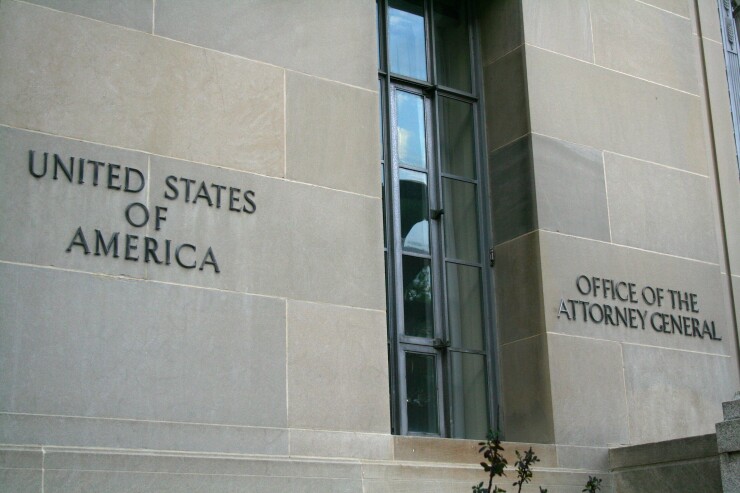PHH Corp. will pay the Justice Department $75 million to settle a False Claims Act investigation of its underwriting practices on mortgages insured by the Federal Housing Administration and Department of Veterans Affairs, as well as loans sold to Fannie Mae and Freddie Mac.
The False Claims Act settlement covers FHA loans originated between Jan. 1, 2006, and Dec. 31, 2011, PHH said in a regulatory filing Tuesday. The Department of Housing and Urban Development's Office of the Inspector General issued subpoenas in 2013 seeking documents related to the origination and underwriting process for FHA-insured mortgages and a small sample of loans originated during that period.

In May, PHH received a proposed settlement from HUD following negotiations in March and April, the company's first-quarter 10-Q said.
"We have agreed to resolve these matters, which cover certain legacy origination and underwriting activities, without admitting liability, in order to avoid the distraction and expense of potential litigation," PHH, of Mount Laurel, N.J., said in a press release. "While we cooperated fully in these investigations since receiving subpoenas in 2013, we concluded that settling these matters is in the best interest of PHH and its constituents."
"This case demonstrates HUD's resolve in protecting the integrity of its mortgage insurance programs for the benefit of all Americans, and in particular, first-time homebuyers," Dane Narode, HUD's associate general counsel for program enforcement, said in a statement to National Mortgage News. "We're gratified that PHH has accepted responsibility for its actions."
False Claims Act mortgage investigations typically focus on lenders' participation in government-insured lending programs like FHA and VA. The PHH settlement is a rare instance of the False Claims Act being used as an enforcement tool for a case involving lender certifications to Fannie Mae and Freddie Mac.
"Government mortgage programs designed to assist homeowners — including programs offered by the FHA, VA, Fannie Mae and Freddie Mac — depend on lenders to approve only eligible loans," acting Assistant Attorney General Chad A. Readler, head of the Justice Department's Civil Division, said in a press release. "The Department has and will continue to hold accountable lenders that knowingly cause the government to guarantee, insure, or purchase loans that are materially deficient and put both the homeowner and the taxpayers at risk."
Even though PHH denied wrongdoing, the Justice Department release said the company admitted to failing to document the borrowers' creditworthiness, including verifying income, assets and funds during underwriting.
PHH also didn't document the amount of the borrowers' net equity in their previous property or if they paid off significant amount of debt, the release said. As a result of this failure, PHH submitted loans that exceeded the FHA's debt-to-income limits.
Some of the allegations against PHH came from a 2013 whistleblower lawsuit filed by Mary Bozzelli, who worked for PHH as an underwriter and underwriting supervisor from 1992 until 2011.
A provision of the False Claims Act allows whistleblowers to share in the settlement's proceeds. Bozzelli will receive $9.1 million.
"Not only did PHH defraud taxpayers, but instead of helping deserving borrowers obtain home loans through the government loan programs, I witnessed firsthand the ways in which PHH abused the programs to line its own pockets," Bozzelli said in a press release from her attorney, Thomas & Solomon LLP of Rochester, N.Y.
PHH had $121 million set aside in legal and regulatory reserves at the end of the first quarter, according to regulatory filings. It increased those reserves by $13 million in the second quarter, the press release said.
This is a different case than the one involving PHH's
PHH, which provides mortgage origination and servicing outsourcing services, is releasing its second-quarter results after the market closes Tuesday.




